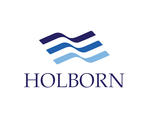Purchases and cash withdrawals are automatically debited and deducted from your savings or cheque account and details of withdrawals are shown on your monthly statement. You’re limited to the funds in your account and may not overdraw your account.
Cards usually have a limit on the amount that can be withdrawn in any one day from ATMs: generally around $450 to $700 (£300 to £500) in local currency. Account balances and mini-statements can usually be obtained from these machines. Most ATMs accept a substantial number of both regional and international cards, invariably illustrated on the machines themselves, although there’s usually a fee for using ATMs operated by banks other than your own. There are plenty of ATMs throughout the region: as well as those inside and outside banks, you will find them in shopping malls, supermarkets and hypermarkets.
Most machines provide instructions and information in Arabic and English. Note that with some machines you must remove your cash quickly or it will vanish before your eyes, back into the machine! If you request more than your current account balance, you will be asked to request a lesser amount or the transaction will be terminated. Transactions will also be terminated and an appropriate message displayed if you select a service that’s unavailable. You can use the ‘cancel’ button at any time to terminate a transaction. Your card will (hopefully) be returned to you and you can start again, if needed. If you lose your card during a transaction (or at any other time), you must notify your bank as soon as possible. Take note of the name of the official that you notify and the time and method of notification. You will probably be asked to come to the issuing bank and complete an appropriate form in order to obtain a replacement card.
Credit & Charge Cards
A credit card provides access to funds on credit up to a particular limit, upon which an interest charge is made, depending on the particular conditions of repayment.
A charge card offers a similar facility but restricts the credit period (usually to a month). Visa and Mastercard are the most widely accepted credit cards worldwide and are the most commonly issued by banks in Kuwait. The presence of the Visa or Mastercard name on an unrecognised Arab bank card is important when travelling to other regions. Charge cards such as those issued by American Express and Diners Club are also available in the Gulf and are fairly widely accepted, although less so than the major credit cards, mainly because of the higher commission charged to the supplier of the goods or services.
The annual fee for a credit or charge card varies with the issuing bank but is usually around $15 (£10) for a standard card, fees rising for gold cards, which provide higher levels of credit. Some cards come with additional benefits, such as travel insurance or life insurance when the card is being used for travel arrangements. Others offer a points system that increases with the amount of purchases, the points being redeemed for consumer goods, travel discounts, etc.. Using a credit or charge card in some countries offers protection against a company going bust or the purchase being faulty. Most major purchases should be transacted with a card if this type of protection is offered. Shop around, as fees, interest charges and benefits vary enormously.
When making purchases in the Middle East, haggling is invariably expected. But the production of a credit or charge card will wipe out any beneficial terms that you might have negotiated. In fact, there might actually be a surcharge if you want to pay with a credit or charge card, particularly if you’re buying from a small trader.
You can of course use a foreign credit card in the Gulf and you might benefit from delayed charging, but not if you withdraw cash, for which charging starts immediately. You might, however, find it more convenient to receive your bills in local currency and pay from local funds, rather than to be subject to fluctuating currency conversion rates. The western practice of major department stores issuing their own credit cards is uncommon in Kuwait, largely because of the cash culture that still prevails in the region.
All credit and charge cards allow you to access cash from ATMs and you might gain some advantage from the rate of exchange between the tourist or commercial rate, although you’re likely to incur a charge for a cash transaction. There are also occasions when a credit card isn’t only useful but a necessity, for example when renting a car or booking into a hotel.
If your card is lost or stolen, make sure that you report it immediately by telephone to the issuing company or bank and confirm it in writing or in person. It’s important to keep the telephone number of the card company to hand for speedy notification. Your liability is usually limited until you report the loss; after that, no liability applies. In the case of theft, you should also report the matter to the police.


